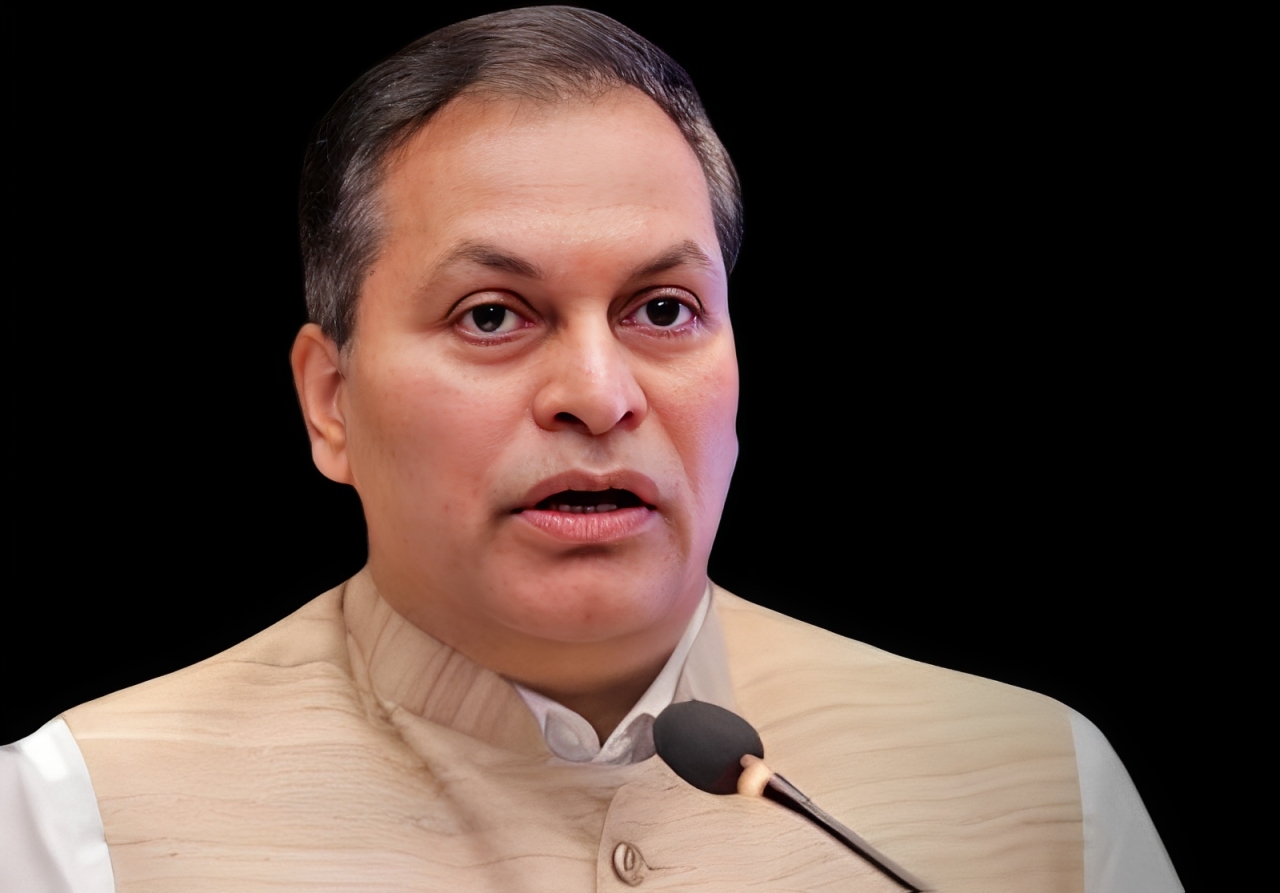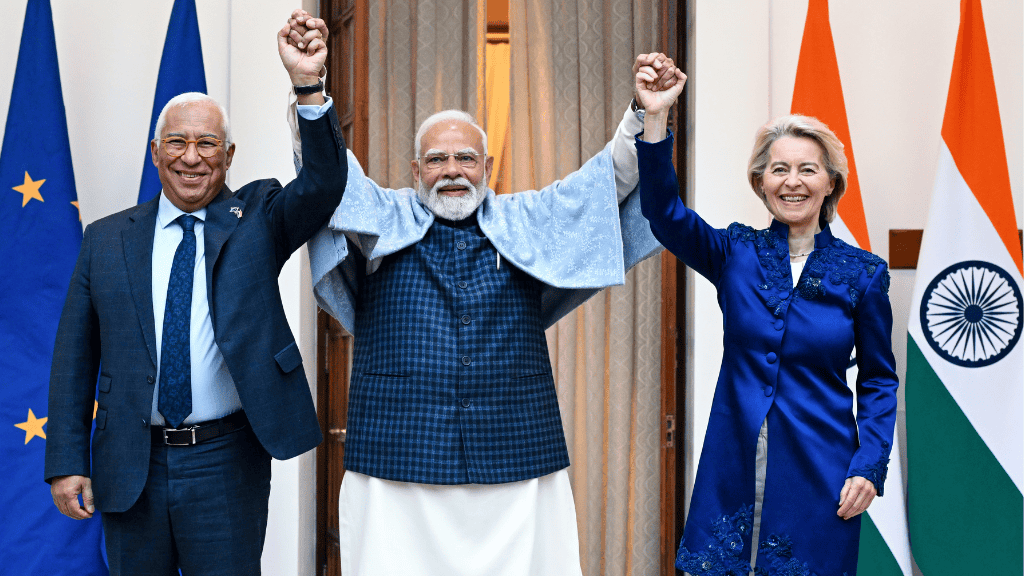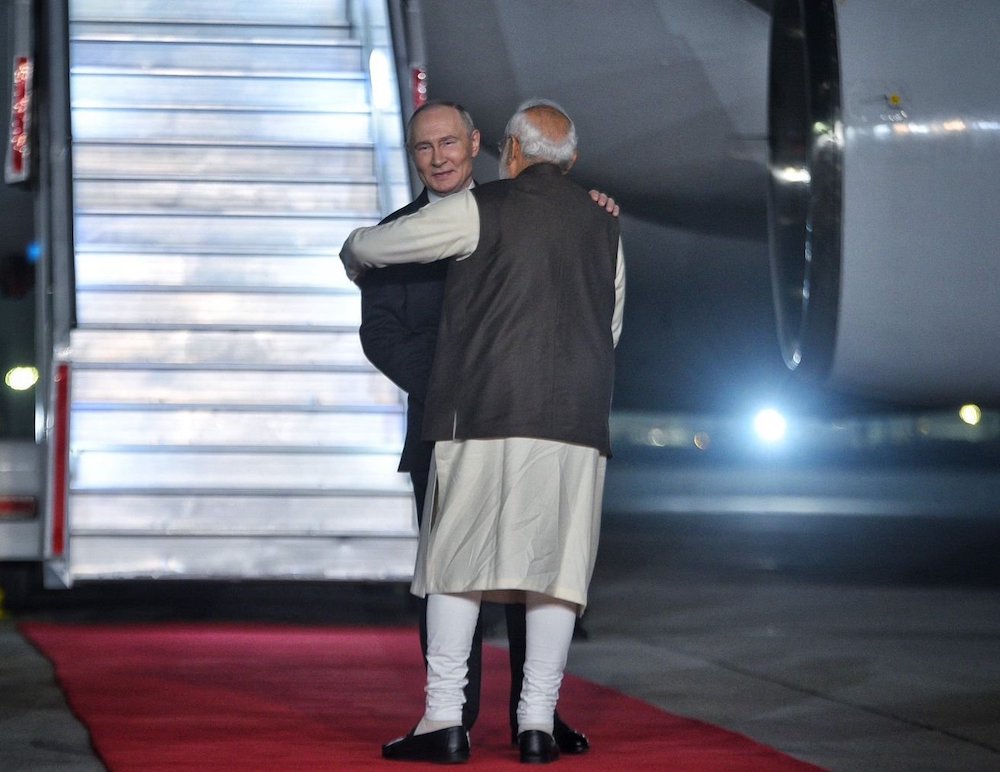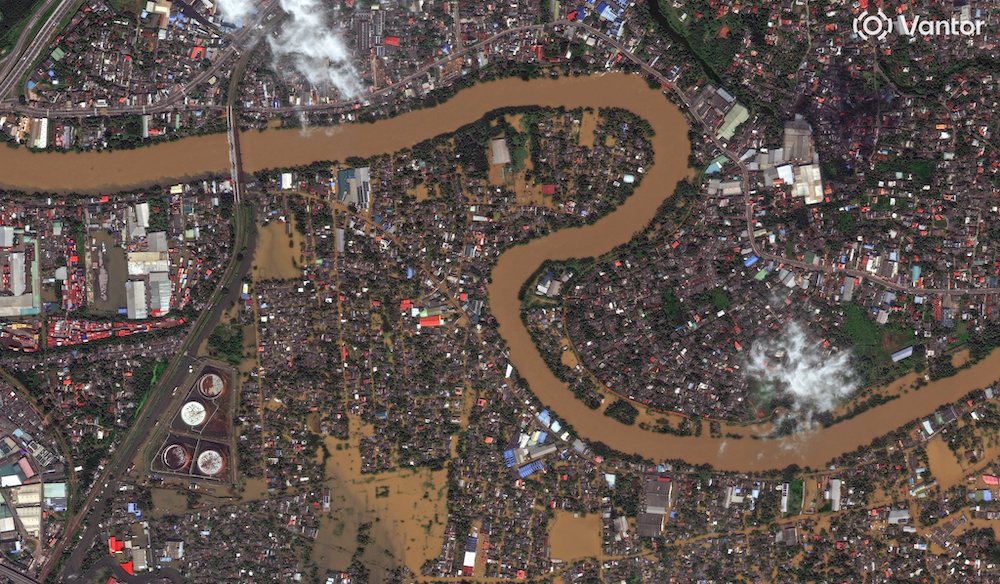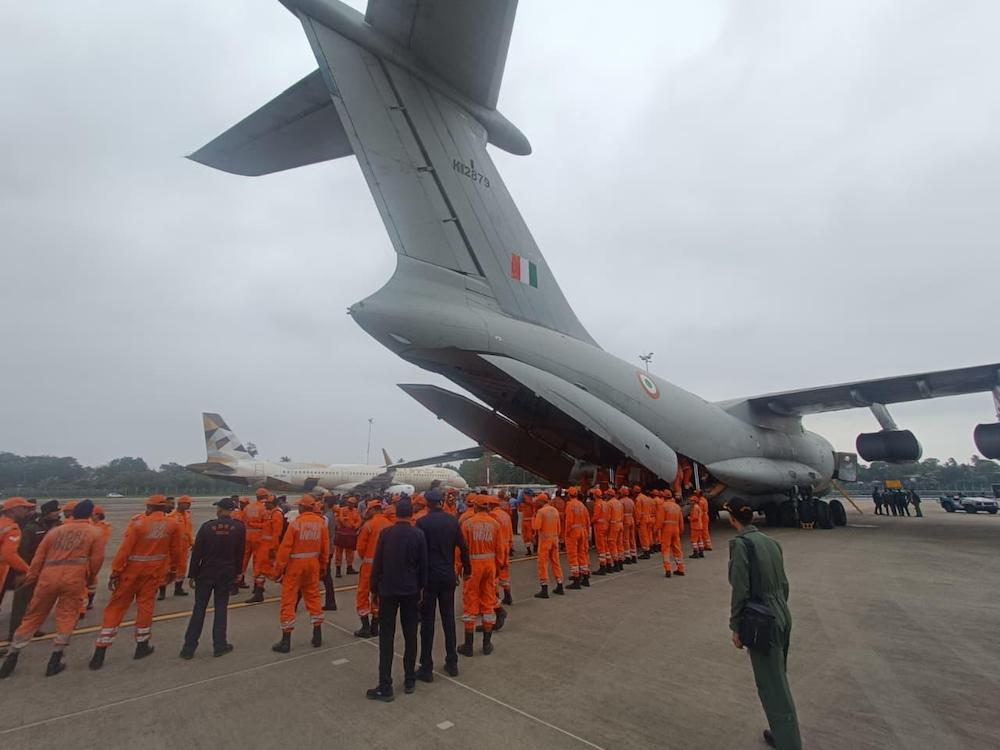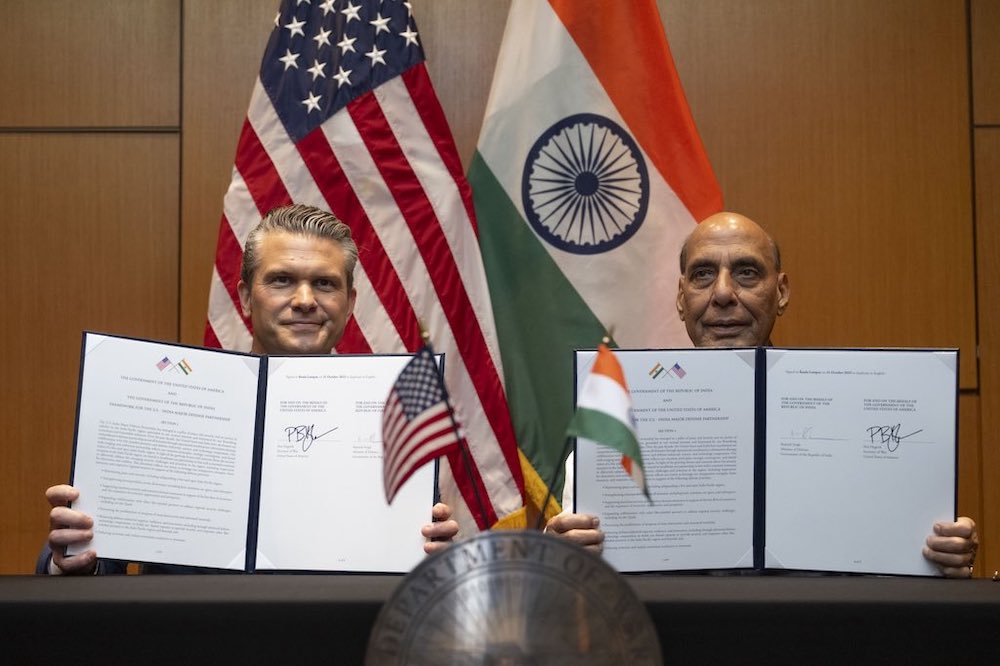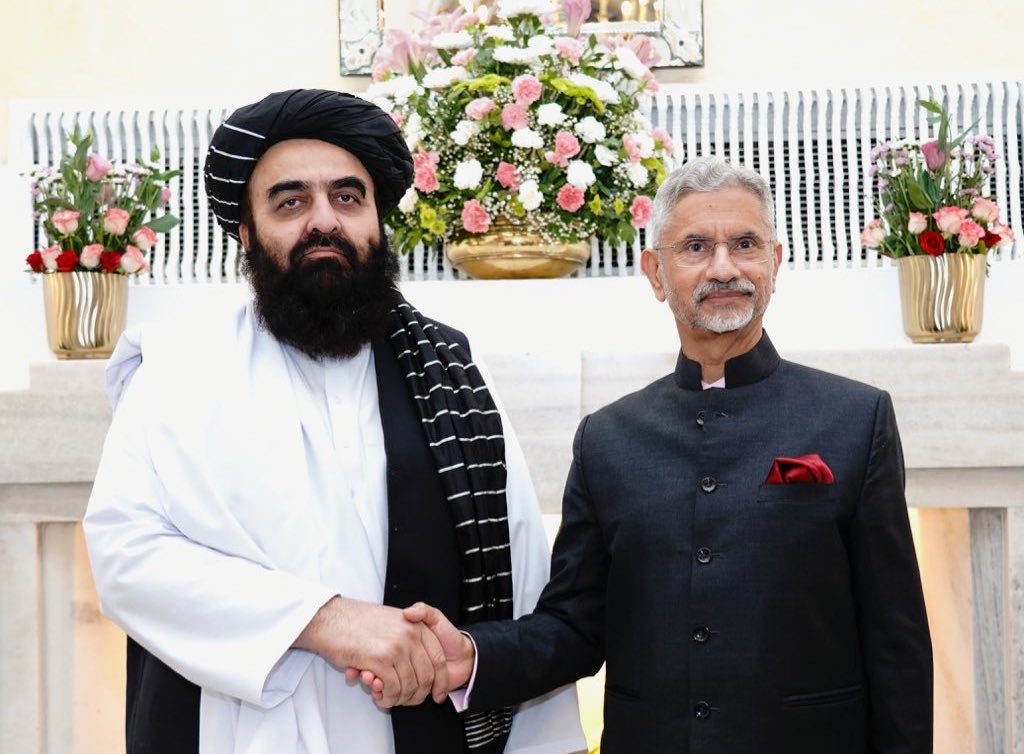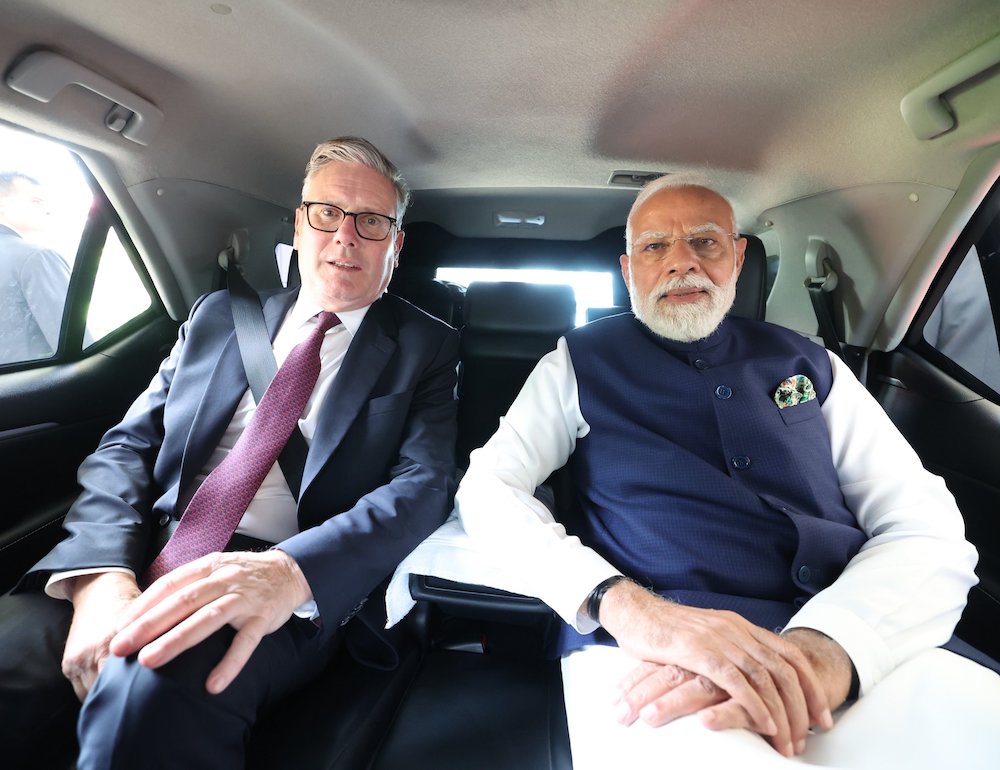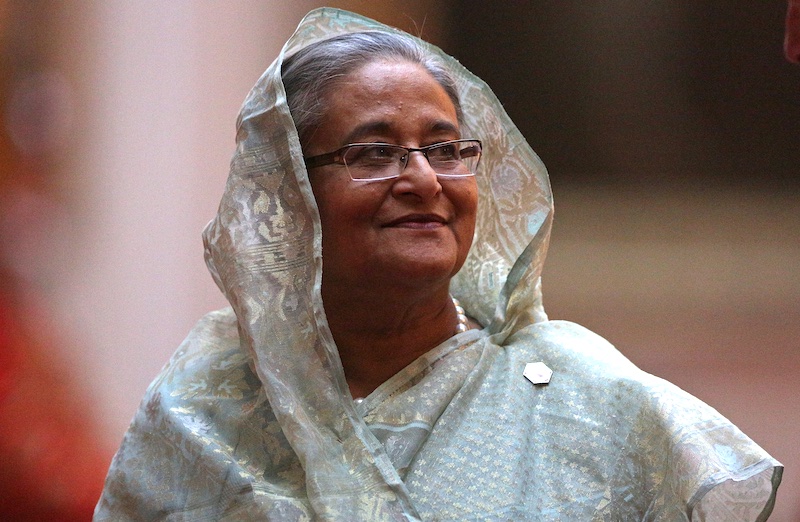 Sheikh Hasina. (File photo)
Sheikh Hasina. (File photo)
New Delhi: In a dramatic and stunning turn of events, Sheikh Hasina Wazed, Bangladesh’s longest-serving prime minister, has resigned on Monday, amid widespread protests, sending shockwaves through the nation, region, and beyond. Following her resignation, Hasina received an ultimatum to leave the country from the military, Bangladeshi media reported. Protesters later stormed her official residence, Gono Bhaban (or Ganabhaban), looted, and ransacked the building.
The protesters in #Bangladesh broke into the Prime Minister's house. Also, it's reported that the prime minister fled the country in a helicopter to seel refuge in India. Like I have said before, the world is at a boiling point. Powerful and dark figures are pushing us all chaos… pic.twitter.com/Y8oTfj2NPy
— Intel Catalyst (@IntelCatalyst) August 5, 2024
The military, under the leadership of the Bangladesh Army chief, General Waker-uz-Zaman, has taken control of the affairs of the country. For now, the sudden development has put the country at a crossroads.
Hasina, 76, departed Dhaka and arrived at the Hindon Air Force Station in Uttar Pradesh’s Ghaziabad district – in the Delhi-National Capital Region (NCR), on board a C-130 Hercules military transport aircraft. In India, she held talks with the national security advisor, Ajit Doval, and discussed the situation in Bangladesh and her future plans.
Before that, she was flown to a Bangladeshi airbase in a military helicopter from where she few to India on a C-130.
Sheikh Hasina and her sister fleeing in an Army helicopter. The deed is done. Student-people uprising has overthrown the regime. All power to the working people through the struggle committees. Maintain general strike. No trust in Army/political parties. pic.twitter.com/fg54m7rNxA
— Jorge Martin ☭ (@marxistJorge) August 5, 2024
Reports said she has sought asylum in the United Kingdom, where her niece is a British member of parliament. Tulip Siddiq, British MP from the ruling Labour Party and economic secretary to the treasury, is the daughter of Hasina’s sister, Sheikh Rehana Siddiq.
India, however, has remained silent on the developments in Bangladesh, so far. Sources in the Ministry of External Affairs (foreign ministry) said a flurry of diplomatic activities are going on in this matter. The ministry might issue a statement in the coming day or two.
Meanwhile, New Delhi has ordered its border-guarding forces to remain on “high alert” and tighten their vigil along the 4,096-kilometre (2,545-mile) border with Bangladesh.
Khaleda Zia released
In a related and major political development, on Monday, Khaleda Zia – former prime minister, leader of the Bangladesh Nationalist Party, and Hasina’s political rival – was released from prison shortly after Hasina’s resignation. The Bangladeshi president, Mohammed Shahabuddin, ordered Zia’s “immediate release” within hours after Hasina ouster.
Zia, 78, is reportedly in poor health and has been mostly confined to a hospital after she was sentenced to 17 years in prison for corruption, in 2018.
The people of Bangladesh today released their former Prime Minister Khaleda Zia from prison#BangladeshViolence #Bangladeshstudentprotest #Bangladesh pic.twitter.com/5OdR8SxLyt
— سميه کريمي (@somia_karimy) August 5, 2024
Shahabuddin’s PR officials said the president took the decision after a meeting with the chiefs of the country’s army, navy, and air force along with the top leaders of several opposition parties, including the BNP and the Hasina-banned Jamaat-e-Islami party. Notably, no representative of Hasina’s Awami League, the largest political party in Bangladesh, was present during the meeting.
Some Bangladeshi political commentators said Zia’s return to the political arena will add further complexity to the country's political landscape.
World reacts to Hasina’s ouster
World capitals have reacted to Sheikh Hasina’s resignation following the protests and the subsequent military takeover of the country.
The United Nations secretary general, Antonio Guterres, has urged calm in Bangladesh following Hasina’s ouster. He highlighted the need for a “peaceful, orderly and democratic transition.”
His spokesman, Farhan Haq, said Guterres “stands in full solidarity with the people of Bangladesh and calls for the full respect of their human rights,” adding, “He continues to underscore the need for a full, independent, impartial and transparent investigation into all acts of violence.”
The United States, in a statement from White House on Monday, commended the Bangladeshi army’s “restraint” and urged for the formation of a “democratic” interim government in the country.
Briefing reporters, a White House spokesperson said, “The United States has long called for respecting democratic rights in Bangladesh, and we urge that the interim government formation be democratic and inclusive. We commend the [Bangladeshi] army for the restraint they have shown today.”
The United Kingdom expressed “deep concerns” over the developments in Bangladesh.
A spokesperson for the UK prime minister, Keir Starmer, said Starmer’s office is concerned by the violence and the “significant loss of life, including of students, children, and law enforcement officers”. It then added that the violence was “completely unacceptable”.
The spokesperson further said, “The right to peaceful protest must be protected and never subject to violence – and we call on the authorities to release all peaceful protesters and ensure due process is followed for those charged and prosecuted.”
Meanwhile, Russia, in a statement, said Moscow sees the changes in the Bangladeshi government as an “internal affair” of the South Asian country. Nonetheless, the statement further said: “However, we look forward to the internal political processes in that friendly country returning to the constitutional norms as soon as possible.”
Post-ouster scenes in Bangladesh
As news of her resignation spread, scenes of jubilation and uncertainty unfolded, with citizens grappling with the sudden shift in leadership. Tens of thousands of people thronged to the streets chanting slogans, displaying banners and placards, and expressing their joy. However, there were many people who expressed their concerns about the uncertainty that lies ahead.
Although the country’s army chief assured the nation that a new interim government will be formed soon and all perpetrators of violence and injustice will be brought to justice, many Bangladeshis remained unconvinced.
There have been reports of violence as well. In one such incident, a crowd fired bullets and tried to storm a police station on the Dhaka-Chittagong Road near the capital. Additional security forces had to be rushed to rescue the besieged 200-odd policemen from the site.
In Dhaka, crowds comprising thousands of agitators also destroyed some statues and a giant mural of Sheikh Mujibur Rahman – the hero of Bangladesh freedom movement.
The iconic moment in #Bangladesh: destruction of the sculpture of dictator Sheikh Mujib, the biological father of fascist #Hasina.These sculptures were behind all state-oriented torture, injustice, murder, disappearance & discrimination over the last 15 years!#BangladeshProtests pic.twitter.com/NDTU61Xhk6
— Torongo M (@ttorongo) August 5, 2024
Sheikh Mujib, who is widely regarded as Bangladesh’s “father of nation” and fondly referred to as “Bangabandhu” (friend of Bangladesh), was Sheikh Hasina’s father. He was assassinated along with his entire family by junior military officers, on August 15, 1975. Sheikh Hasina and her sister Sheikh Rehana survived as they were in Germany at that time.
Statues and Monuments of Sheikh Mujib ur Rahman Demolished Across Bangladesh, Scenes from Dhaka Airport #Bangladesh #SheikhHasina https://t.co/AoZjnesCk2 pic.twitter.com/yHFo5LUt6v
— Eagle Eye (@zarrar_11PK) August 5, 2024
Many in Bangladesh now believe that Hasina’s heavy-handedness in ruling the country and dealing with the opposition coupled with turning a blind eye to rampant corruption and undermining of democratic and constitutional institutions destroyed the legacy of her father, who was a much-revered figure in the country.
Hasina’s ouster and legacy
Sheikh Hasina, Bangladesh’s longest-serving premier, stepped down from power abruptly following weeks of nationwide demonstrations, which often turned violent and claimed over 300 lives officially (some figures put the death toll over 1,000) since it started in June this year. These protests highlighted growing discontent with her increasingly authoritarian rule, unchecked corruption, and nepotism, despite overseeing remarkable economic progress during her tenure.
Under Hasina’s leadership, Bangladesh transformed from one of the world’s poorest nations into a regional economic powerhouse. The country’s per capita income tripled, and millions were lifted out of poverty. According to World Bank’s 2023 data, Bangladesh’s per capita income rose to $2,529.1, which was higher than India’s per capita income of $2,484.8 during the same period.
However, this progress came at a price. Although economic gains were significant, disparities persisted, and several scams came to light. Large-scale bank scams were exposed resulting in widespread anger in the country.
Apart from widespread corruption, the country’s general election, which was held in January this year, was also marred by boycotts, jailing of opposition leaders and activists, low turnout, widespread violence, and allegations of institutionalized vote rigging. This happened while her government relied on hard power, stifling freedom of expression, and suppressing civil rights.
Hasina’s popularity started waning over the last few years due to the erosion of democratic values and civil liberties under her government. This has culminated in her ouster from power, on August 5.
Challenges for next Bangladesh leader
Bangladesh’s incoming leader faces an enormous and complex range of challenges. The new leader must delicately tread the political tightrope to bring peace and stability to the country. Some of the challenges include:
* Political schisms and unrest: The January 2024 Bangladesh general election have deepened political divisions in the country. The legacy of the “battling begums” (Hasina-Zia rivalry) continues to impact the political landscape.
The new leader must also consider that there are tens of millions of Hasina supporters in Bangladesh. Many of them, who belong to Hasina’s Awami League party, are accused of taking part in the violence with the backing of security forces that resulted in scores of deaths. Reconciliation with the Awami League is the key to ensure lasting peace and stability.
* Foreign relations: Maintaining strong ties with neighbouring countries, especially India, while asserting Bangladesh’s sovereignty is essential for regional stability. Whoever eventually comes to power must understand that continuity in cordial ties between Bangladesh and its neighbour is the key for regional stability, economic progress, and overall development.
* Economic and social development: Balancing economic progress with social welfare remains crucial. The new leader will have to address income disparities, unemployment, and poverty reduction are pressing concerns.
* Corruption and governance: Bangladesh is plagued by systemic corruption. It was one of the major reasons for public anger in the country that turned into countrywide protests that culminated with the ouster of Sheikh Hasina. The new leader will face the challenge to ensure transparency, accountability, and efficient governance.
* Climate change and natural disasters: Bangladesh is a cyclone-prone country situated at the mouth of the Bay of Bengal. Every year, cyclones and storms batter the country killing people and pushing back the economy. Although the country has come a long way in disaster early warning and disaster management, it still has a lot of work to do.
Besides, Bangladesh’s vulnerability to climate change and rising sea levels necessitates effective disaster preparedness and adaptation strategies.
Sheikh Hasina’s sudden resignation and fleeing from the country in the face of countrywide protests have put Bangladesh at crossroads. The new interim government, which the country’s army chief has promised soon, will have its task cut out to bring peace and stability in the South Asian country while maintaining the delicate diplomatic ties with its neighbours, especially India.
It will also have to address major issues, like widespread and institutionalized corruption, bringing the perpetrators of violence and corruption to justice, and issues related to economy and labour.

